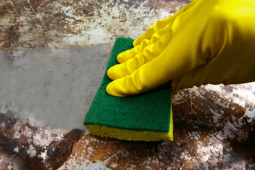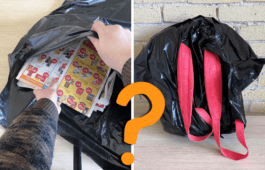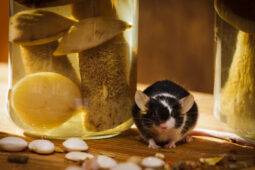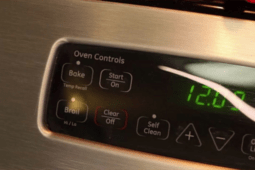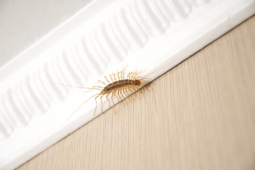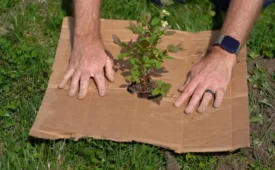Why Your Kitchen Sponge Might Be Making Your Dishes Dirtier
When you grab your kitchen sponge to scrub a plate, you probably assume you’re getting rid of grease, grime, and bacteria. But what if I told you that little yellow-and-green scrubber might be making your dishes even dirtier? Yep, that innocent-looking sponge could be teeming with bacteria, spreading germs across your plates instead of removing them. Before you start rethinking everything you know about dishwashing, let’s break down why your sponge is more of a problem than a solution and what you should do about it.
The Dirty Truth About Your Kitchen Sponge
You might think your sponge is your best ally in the fight against dirty dishes, but it could actually be the biggest culprit in spreading bacteria around your kitchen. Studies have found that kitchen sponges can harbor more bacteria than a toilet seat—yikes! With all the moisture, food particles, and warmth, your sponge creates the perfect breeding ground for bacteria like E. coli and salmonella.
Even worse, every time you wipe your dishes or countertops with a contaminated sponge, you’re just transferring those germs instead of getting rid of them. What looks like a squeaky-clean plate might actually be teeming with invisible bacteria, making your next meal a not-so-tasty health hazard.
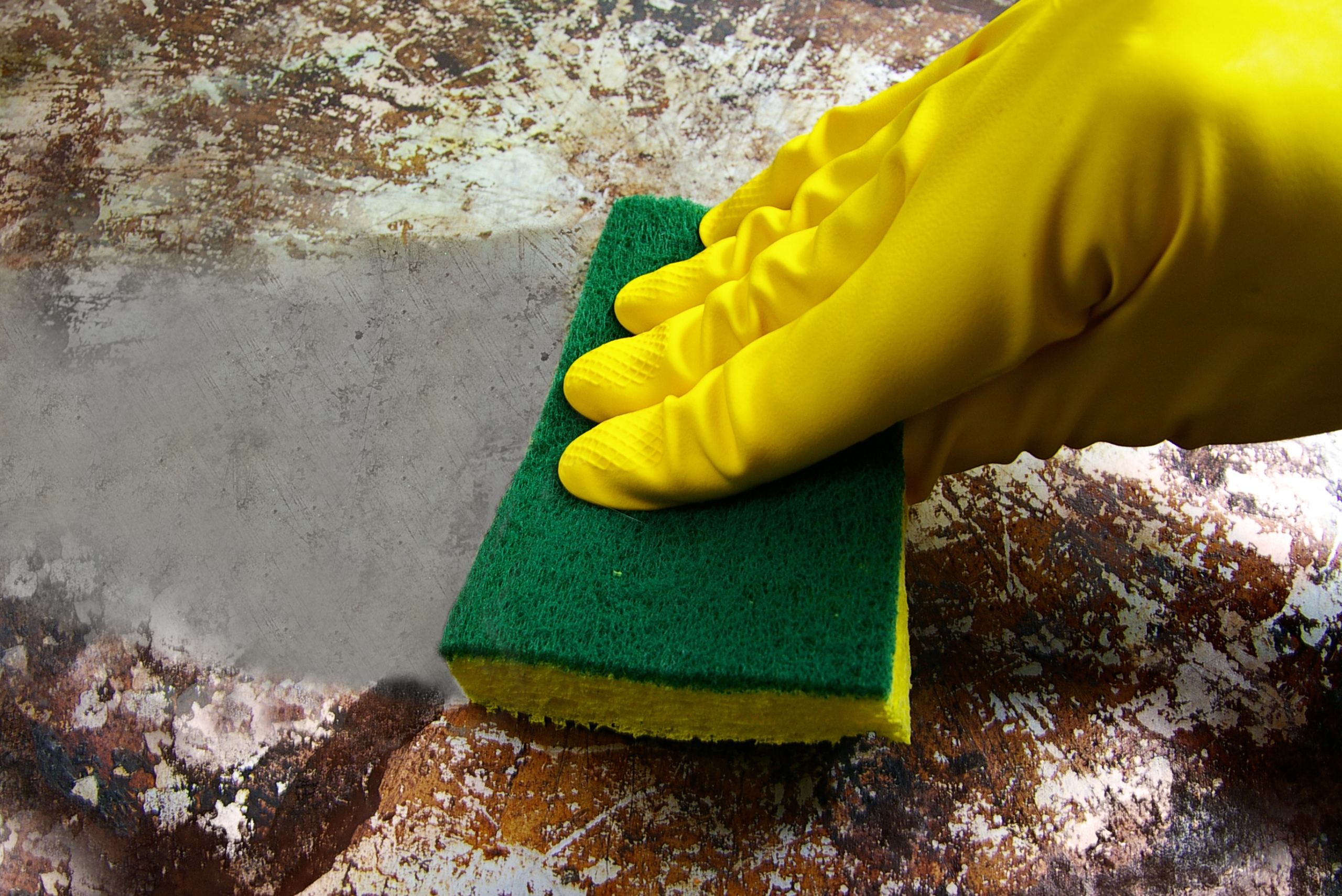
Why Rinsing Your Sponge Isn’t Enough
Most people rinse their sponge under hot water after using it, assuming that’s enough to clean it. Unfortunately, it’s not. A quick rinse may wash away some visible grime, but it does nothing to eliminate bacteria hiding deep in the sponge’s porous surface. In fact, the warm, damp environment only encourages microbes to multiply at an alarming rate.
Even microwaving or boiling your sponge methods, often suggested as quick fixes, may not fully eliminate the bacteria. Some studies have shown that while these methods kill weaker bacteria, they allow stronger, more resistant strains to thrive, making the problem even worse.
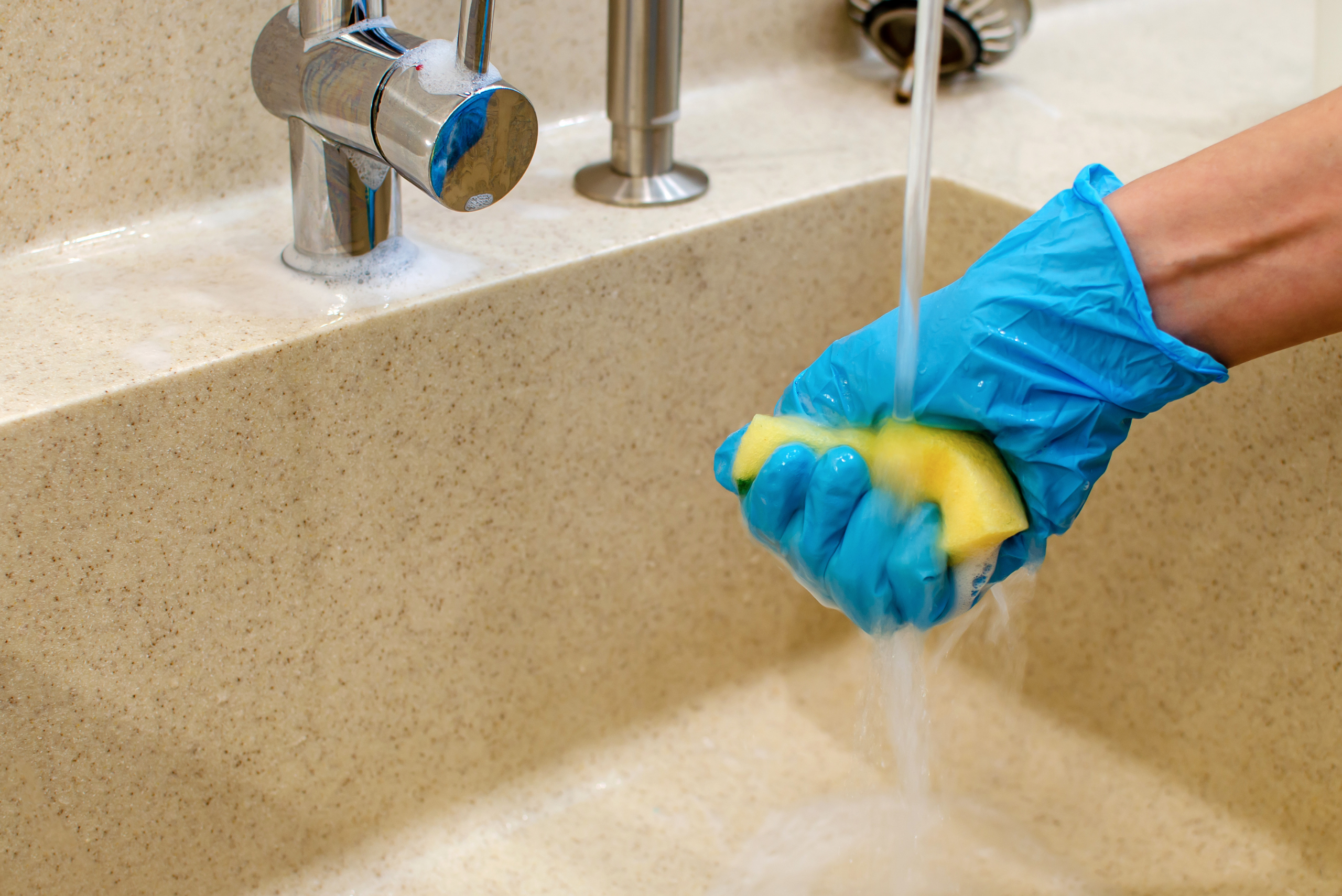
The Cross-Contamination Nightmare
If you’re using the same sponge for everything in your kitchen, you’re basically hosting a bacteria party and inviting them to spread everywhere. Wiping down cutting boards, countertops, and even your sink with the same sponge you just scrubbed your dishes with is a recipe for cross-contamination.
Raw meat juices, food residues, and leftover grease all get absorbed into the sponge and redistributed with every wipe. This means your “clean” dishes could be picking up bacteria from last night’s raw chicken prep; definitely not the seasoning you want!
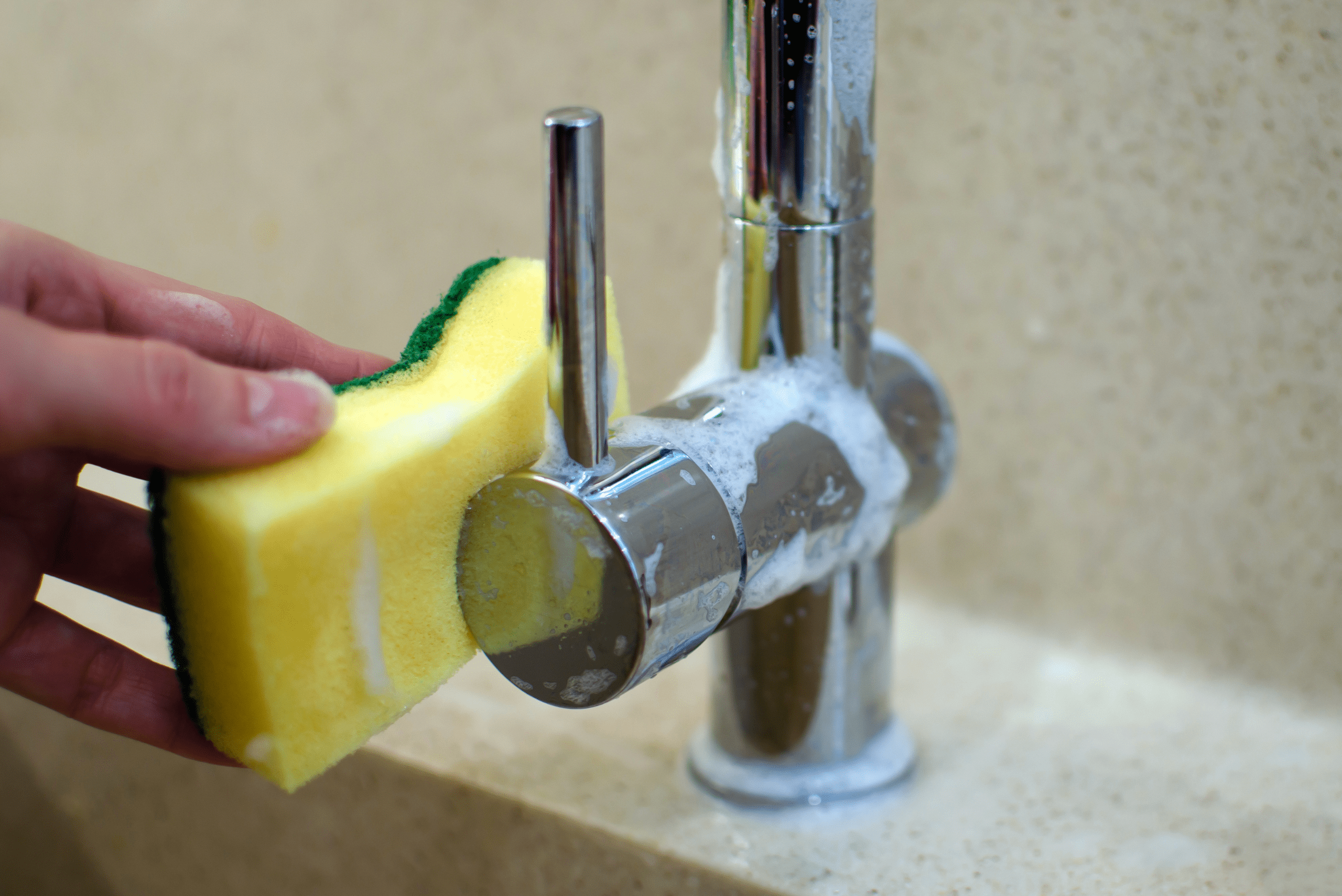
How Often You Should Replace Your Sponge
So, if your sponge is basically a petri dish, how often should you replace it? Experts recommend swapping it out at least once a week, depending on how often you use it. If your sponge starts to smell funky or looks discolored, that’s a sure sign it’s past its prime and should be tossed immediately.
To keep things even cleaner, consider using disposable dishcloths, silicone scrubbers, or other alternatives that dry quickly and are less likely to harbor bacteria. The key is to avoid letting your sponge become a long-term resident in your sink; it’s not a family heirloom, after all!
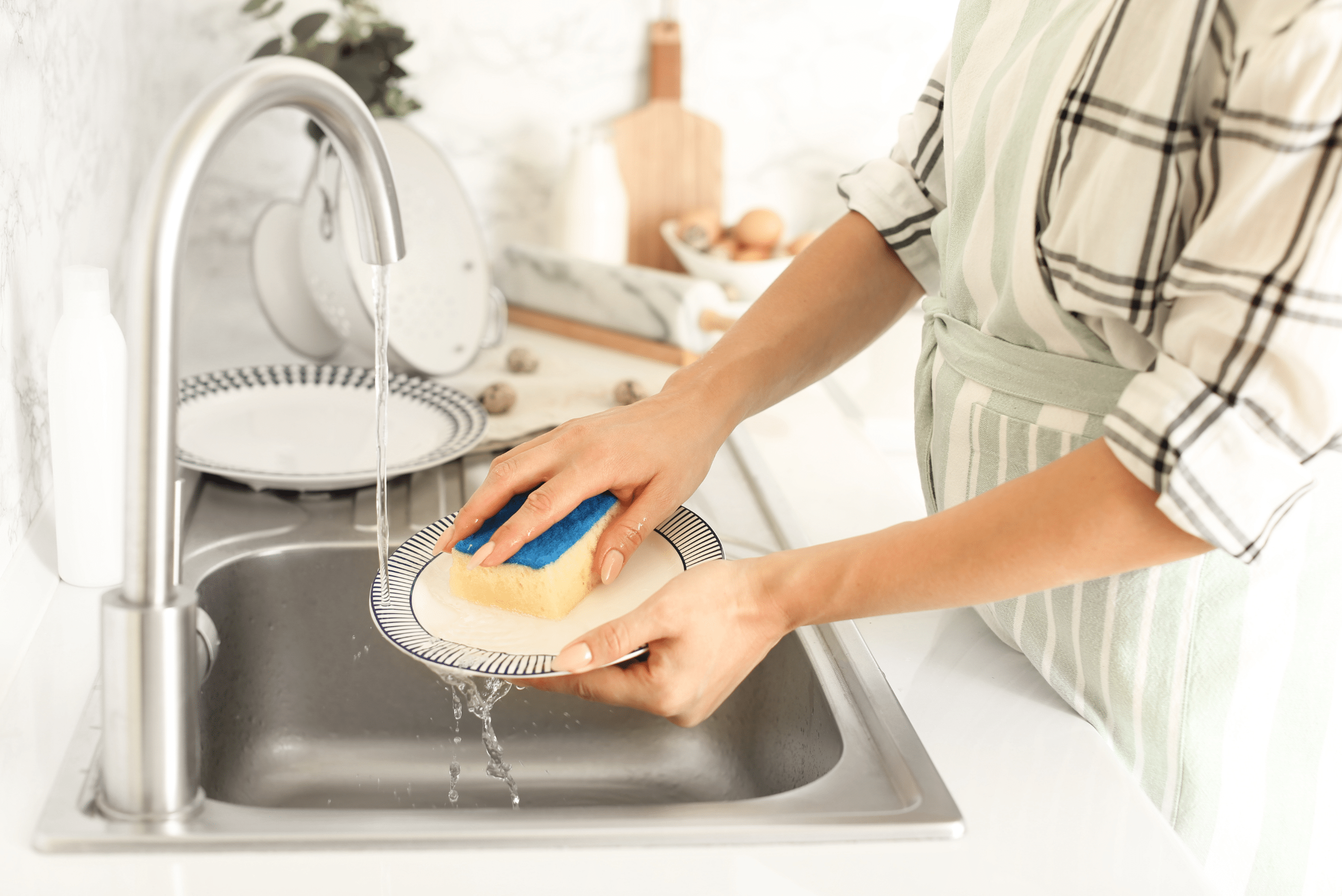
The Best Way to Keep Your Dishes Truly Clean
If you want your dishes to be actually clean, not just “sponge-wiped,” opt for cleaning methods that don’t involve germ-infested sponges. Using a brush with synthetic bristles or a silicone scrubber is a great alternative since they don’t retain as much bacteria. Even better, run your dishes through the dishwasher whenever possible, as high temperatures and detergents help kill off lingering bacteria.
For those who still prefer sponges, make sure you store them in a dry place, wring them out completely after each use, and replace them frequently. Proper hygiene practices can make all the difference between a truly clean kitchen and a bacterial hotspot.
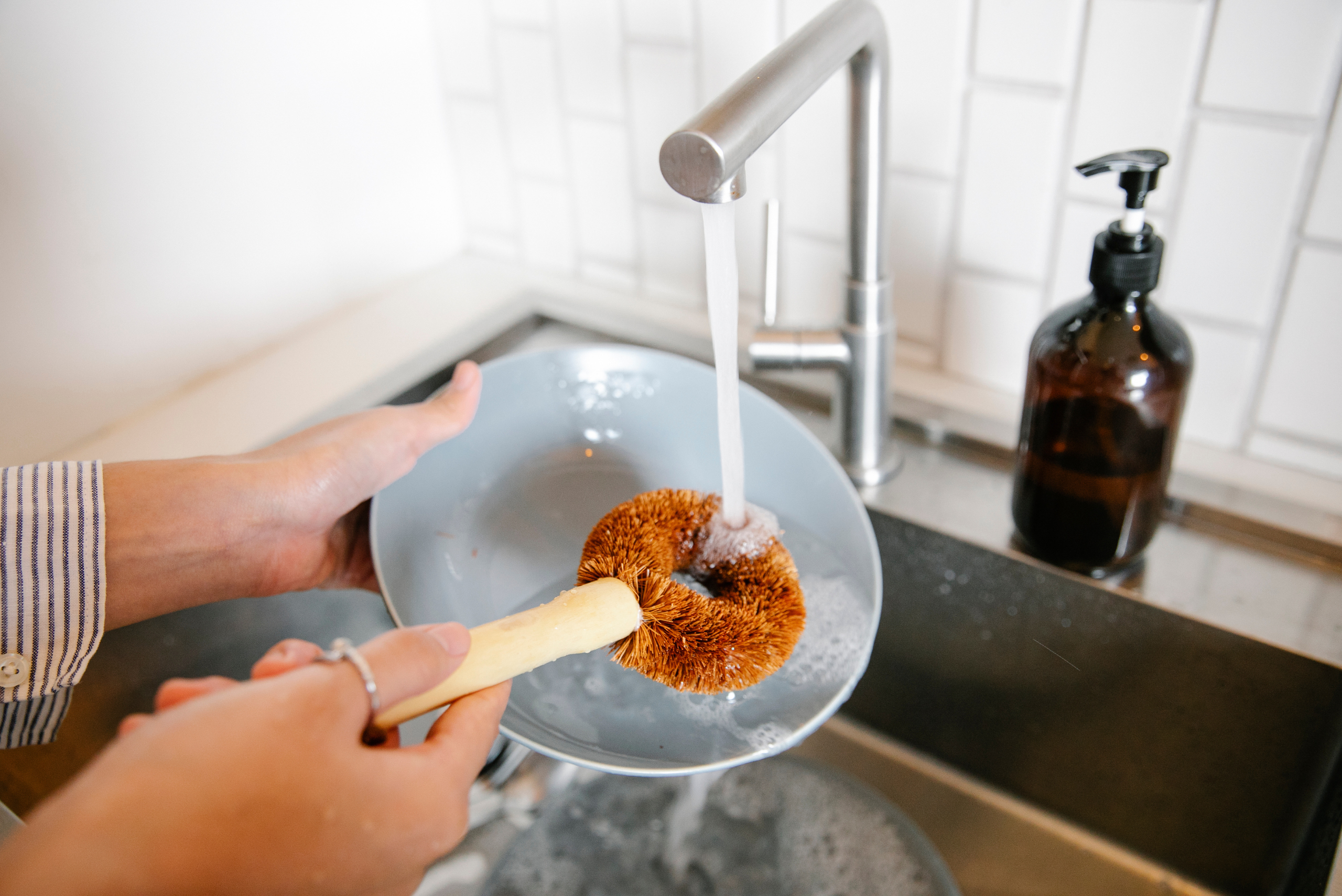
Related Articles
- 3 Types of Sponges You Need to Tackle Every Household Mess in Minutes
- Why You Should Never Mix Baking Soda and Vinegar for Cleaning
- 5 Great Uses for Blue Dawn Dish Soap
Your kitchen sponge might seem like an innocent cleaning tool, but it could be doing more harm than good. With its ability to harbor and spread bacteria, it’s important to replace it regularly and consider alternative cleaning methods. A little awareness and a few simple changes can help keep your dishes actually clean without the unwanted side of germs. So, ditch that funky sponge before it turns your kitchen into a science experiment!

